Why do African children often have such big bellies? (5 photos)
In many photographs showing residents of poor African villages, you can see dirty, half-naked children in torn clothes. One of the most noticeable features of these babies is their swollen belly. 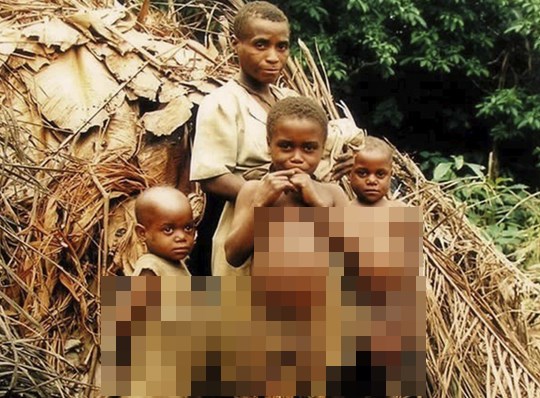
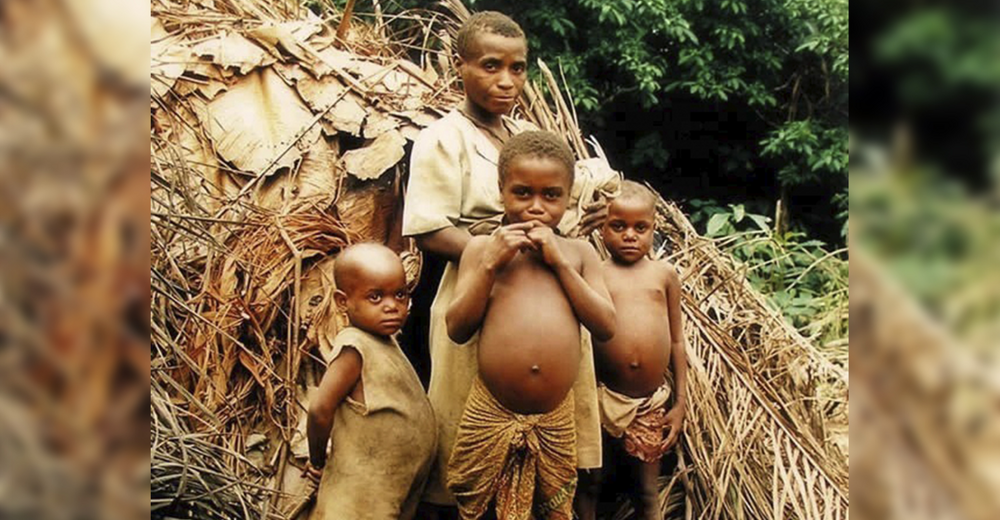
It is confusing to many, why do malnourished children grow such big bellies? Shouldn't they be thin from malnutrition? 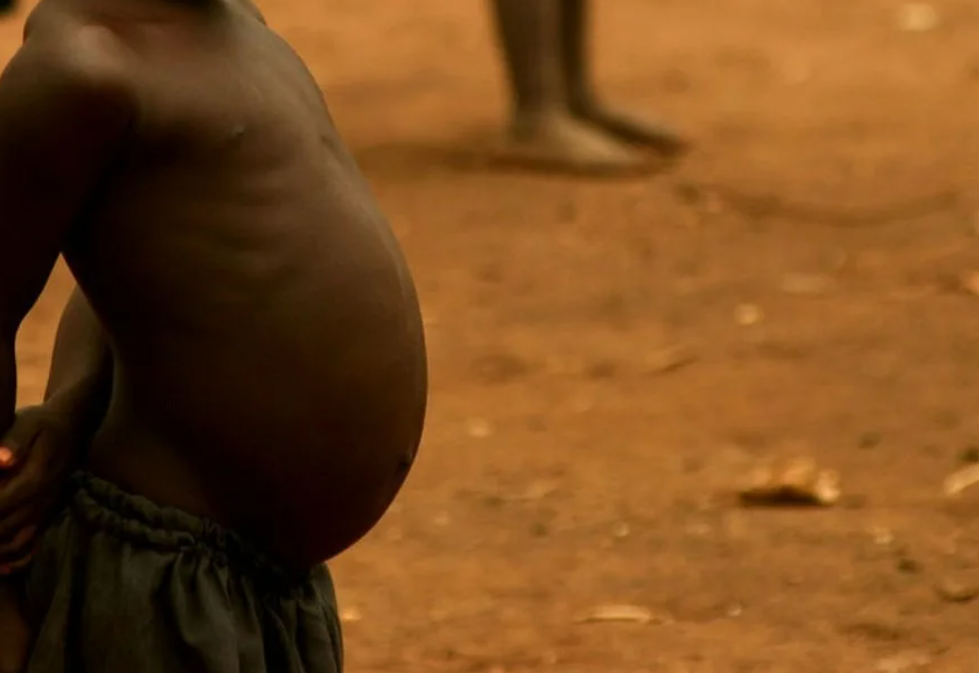
Usually in well-fed countries, a big belly is associated with good nutrition. Or rather, with an excess of flour and fat, its owner leaning on beer. Plus a sedentary lifestyle.
Naturally, this cannot be thought about African children. What is the question here, you ask me again?
In fact, such a swollen belly among the small inhabitants of the dark continent is called kwashiorkor. And this form of severe dystrophy does not even occur from starvation. And from an overabundance in the diet there are entirely carbohydrates with a deficiency of proteins, especially of animal origin.
It is this incorrect form of nutrition that leads to a bloated belly in a child. Interestingly, the word "kwashiorkor" is roughly translated from the language of the Ga people living in Ghana as "disease of the first child after the birth of the next." For kwashiorkor most often affects children who, due to the appearance of younger brothers or sisters in the family, are weaned from their mother’s breast at a very early age. 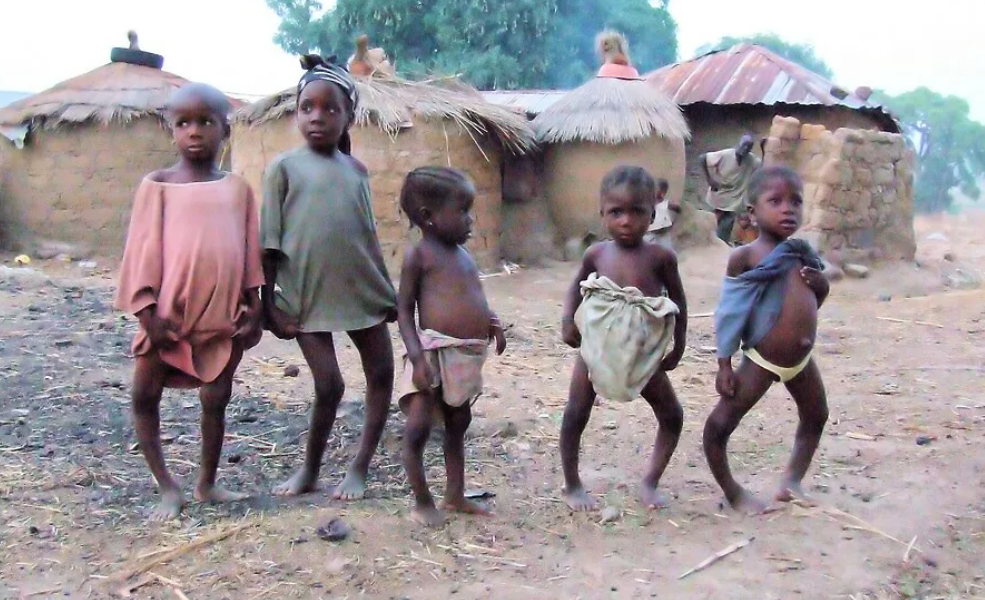
That is, to put it simply, children are losing a very important source of protein and amino acids in one fell swoop. They switch to eating purely plant foods, extremely poor in proteins - from bananas to cassava tubers with sweet potato. Such a diet causes retention and excessive accumulation of excess fluid in the body. The result is swelling and bloating. And also a whole bunch of other harmful diseases. For example, rickets, delayed physical and mental development of a child.
So, alas, even if the children who suffered from kwashiorkor are switched to a healthy protein diet, they will still never reach the level of development in their lives that they could have achieved without this disease. 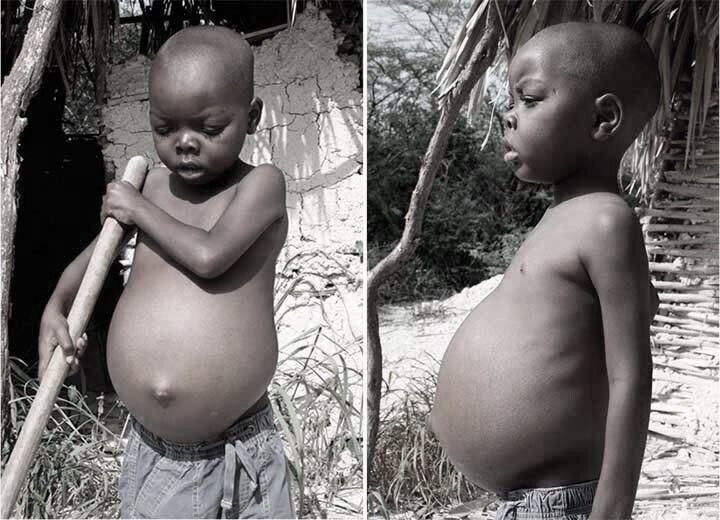
That is, to put it simply, children are losing a very important source of protein and amino acids in one fell swoop. They switch to eating purely plant foods, extremely poor in proteins - from bananas to cassava tubers with sweet potato. Such a diet causes retention and excessive accumulation of excess fluid in the body. The result is swelling and bloating. And also a whole bunch of other harmful diseases.
For example, rickets, delayed physical and mental development of a child.
So, alas, even if the children who suffered from kwashiorkor are switched to a healthy protein diet, they will still never reach the level of development in their lives that they could have achieved without this disease.
By the way, not only African children aged 3-6 years old suffer from kwashiorkor. But they are also fully grown people, although less often. And not only in Africa - this is a specific disease, a consequence of eating purely plant foods, and can be seen in some Papuans or certain Indian tribes in the jungles of South America.
But in our northern latitudes, kwashiorkor was usually found or is found only during severe famine, when “all people swell from hunger.” For the basis of the diet in Europe has always been grain. Rich in proteins, albeit plant-based. 






























